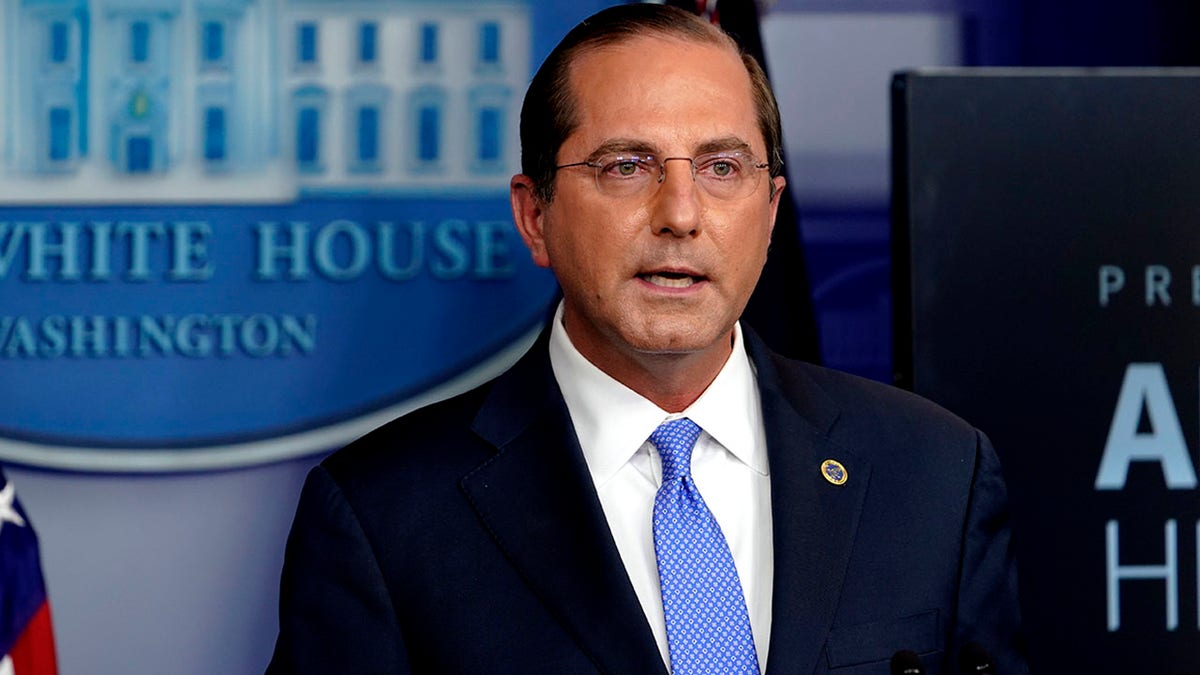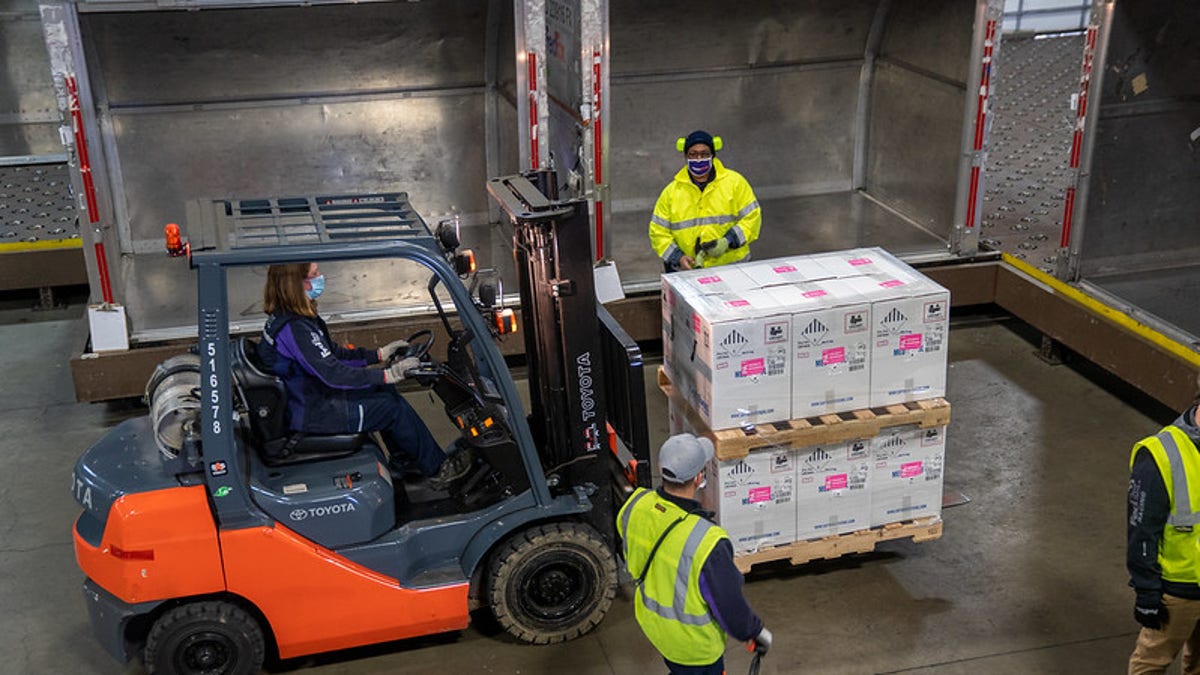Fox News Flash top headlines for December 17
Fox News Flash top headlines are here. Check out what's clicking on Foxnews.com.
Health and Human Services Secretary Alex Azar on Thursday detailed some "hiccups" that have cropped up during distribution of Pfizer’s recently approved COVID-19 vaccine.
"It’s been going smoothly so far, there are going to be hiccups though," Azar said on CNBC as he discussed a "slight negative excursion" amid vaccine rollout.
"Gen. [Gustave] Perna talked about how we had a couple of shipments where there was an excursion of temperature that went actually below the cold limit to minus 92," Azar said. "We immediately saw that because of the tracking systems we have in place, the real-time tracking."
PFIZER COVID-19 VACCINE SHIPMENTS UNDER CLOSE WATCH AMID UPCOMING SNOWY WEATHER, AZAR SAYS

Health and Human Services Secretary Alex Azar speaks during a news conference in the briefing room at the White House in Washington, Friday, Nov. 20, 2020. (AP Photo/Susan Walsh)
Perna, Operation Warp Speed chief operating officer, told reporters that several trays of vials delivered to Alabama and California had been sent back to Pfizer over the issue.
"We pulled those trays, and we immediately sent substitute trays," Azar said, adding how the Food and Drug Administration will work with Pfizer to determine if "those excursions are of concern or if that product is still perfectly usable."

FedEx workers transport vaccine doses in Grand Rapids, Mich. (FedEx)
CLICK HERE FOR FULL CORONAVIRUS COVERAGE
Nevertheless, Azar reiterated comments that the complexity with Pfizer’s coronavirus vaccine does not lie in the subfreezing storage requirements. He said hospitals are well equipped to manage the storage requirements to keep up with the vaccines' cold chain.
The initial wave of vaccine distribution this week involved 5.9 million doses blanketing the U.S. If Moderna’s vaccine candidate sees emergency approval from federal regulators later this week, officials say 6 million Moderna vaccine doses could rollout on Monday.
While federal officials recently announced an agreement for another 100 million Moderna doses, for 200 million total, Azar on Thursday said the government is optimistic it will "secure additional quantities" from Pfizer in the second quarter of 2021.
In the meantime, the U.S. has an agreement for 100 million Pfizer doses through March 31, with an allocation of 20 million doses each month.









































